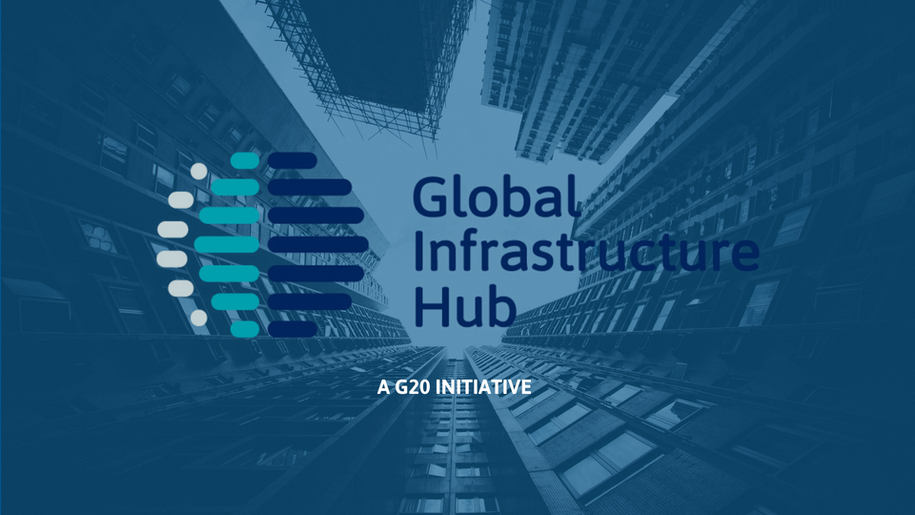1109 results found
Featured results



More results
As outlined earlier in this blog series, private investors are looking for reliable returns to justify the risks that they are taking. Financing and procurement of cross-border projects will often be more complex than national projects due to the scale of the project and compounded risks, and the financial returns may be more uncertain than for national projects.
The Financial Stability Board (FSB) have published a consultation report on the Evaluation of the effects of financial regulatory reforms on infrastructure finance.
On 22 July, at their meeting in Buenos Aries, the G20 Finance Ministers and Central Bank Governors voted to renew the mandate of the Global Infrastructure Hub for another four years.
The Global Infrastructure Hub and Turner & Townsend Launch PPP Contract Management Tool. Effective management essential to unlocking value behind infrastructure PPPs.
The third Annual Meeting of the Asian Infrastructure Investment Bank (AIIB) was held in Mumbai on 25-26 June 2018, and the Global Infrastructure Hub was asked to join one of the panels organised by India, as the host nation.
Infrastructure can often be used as a pawn in the political chess game, not only at a federal level between political parties, but at a foreign policy level too. It’s crucial that a cross-border infrastructure project has political support and cooperation from all parties involved, and that it’s being supported not for political gain, but to further regional development. A lack of strong political leadership can be detrimental to a cross-border project, and weak capacity can be a deterrent to investors.
The Africa Infrastructure Fellowship Program (AIFP)—a joint initiative between the Global Infrastructure Hub (a G20 initiative), private investment firm Meridiam, and the World Economic Forum (WEF)— has been formally announced by Mr Jean-Baptiste Lemoyne, the Secretary of State attached to the Minister for Europe and Foreign Affairs.
The GI Hub was asked to join a panel discussion on Risk Mitigation in Infrastructure Financing. Mark Moseley, the GI Hub’s Chief Operating Officer, identified the risks which typically arise during major infrastructure projects, including land acquisition risks, demand risks, foreign exchange risks and political risks.

The PPP Contract Management Tool provides practical guidance to government officials responsible for managing public-private partnership (PPP) contracts and concession contracts during construction and operations, based on extensive data and real-life case studies.


On 3-4 July 2018 the GI Hub gave a series of presentations at the International PPP Finance Summit, held in London.
A new report released today by the Global Infrastructure Hub, a G20 initiative, has revealed an infrastructure investment gap of US$1 trillion in 10 Compact with Africa countries over the next 22 years.
The participants of the second Regional Roundtable on Infrastructure Governance held in Côte D’Ivoire last week reinforced the need for good governance across all stages of infrastructure delivery. The Regional Roundtable was the second of its kind, with the first held in South Africa in November 2017.
This brief illustrates the rationale, methodology and results of the African Infrastructure Development Index.

This paper first identifies the long-term risks associated with land sale, second the paper proposes the land trust or land lease for the development of infrastructure investment and industrialization purposes.

Capital planning guidelines provide guidance on how infrastructure programs and project proposals should be planned, appraised and evaluated before significant funds are committed.

The PPP manual provides an overview of the procedures to be followed and approvals required for implementation of a PPP project.

The GI Hub was asked by the Asia Pacific Investors Cooperation organisation (APIC) to give a presentation on the state of ASEAN infrastructure markets at the APIC 2018 Summit in Tokyo on 21-22 June 2018.




 Cross-border Infrastructure
Cross-border Infrastructure















